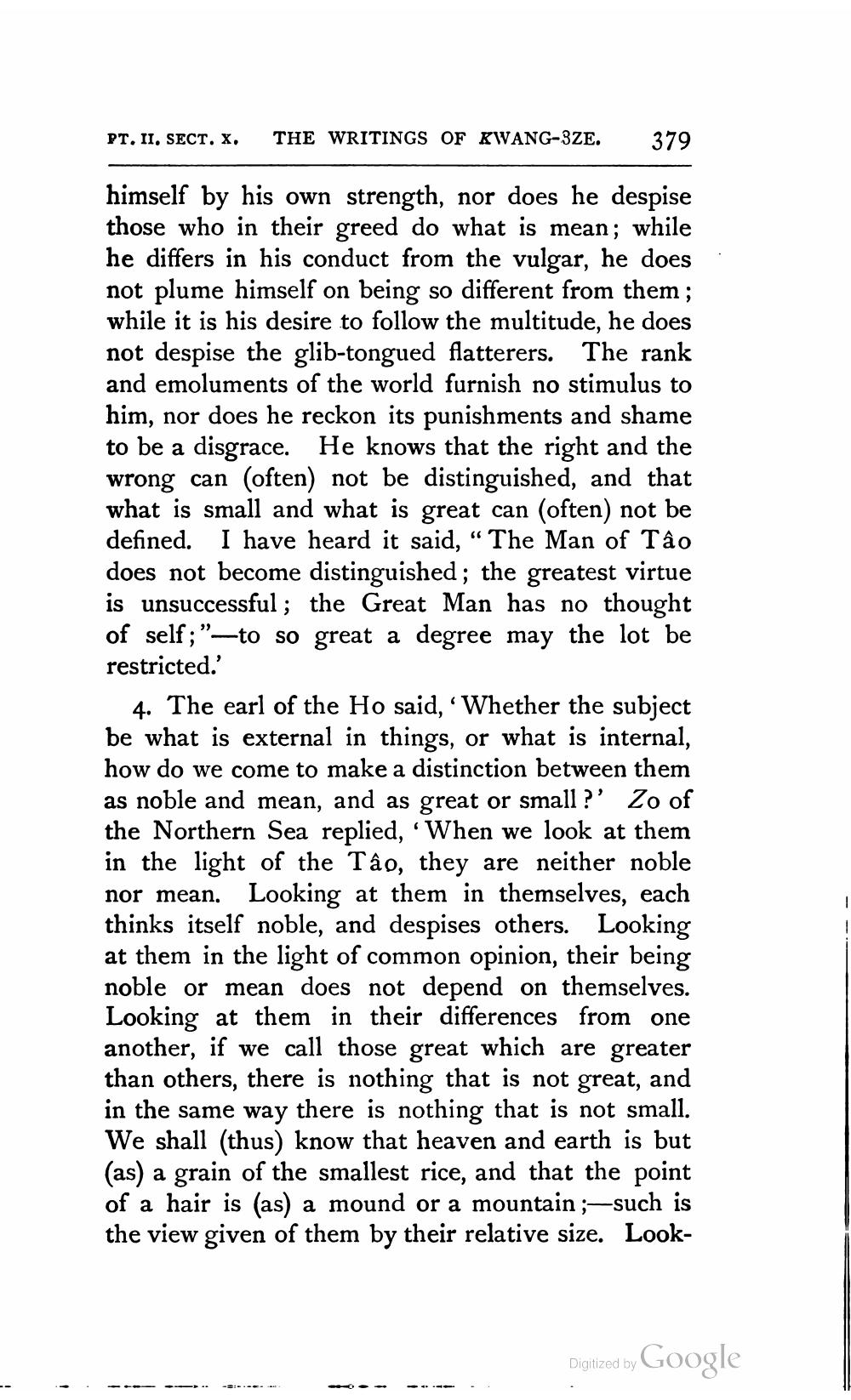________________
PT. II. SECT. X. THE WRITINGS OF KWANG-3ZE.
379
himself by his own strength, nor does he despise those who in their greed do what is mean; while he differs in his conduct from the vulgar, he does not plume himself on being so different from them; while it is his desire to follow the multitude, he does not despise the glib-tongued flatterers. The rank and emoluments of the world furnish no stimulus to him, nor does he reckon its punishments and shame to be a disgrace. He knows that the right and the wrong can (often) not be distinguished, and that what is small and what is great can (often) not be defined. I have heard it said, "The Man of Tâo does not become distinguished; the greatest virtue is unsuccessful; the Great Man has no thought of self; "- -to so great a degree may the lot be
restricted.'
4. The earl of the Ho said, 'Whether the subject be what is external in things, or what is internal, how do we come to make a distinction between them as noble and mean, and as great or small?' Zo of the Northern Sea replied, 'When we look at them in the light of the Tâo, they are neither noble nor mean. Looking at them in themselves, each thinks itself noble, and despises others. Looking at them in the light of common opinion, their being noble or mean does not depend on themselves. Looking at them in their differences from one another, if we call those great which are greater than others, there is nothing that is not great, and in the same way there is nothing that is not small. We shall (thus) know that heaven and earth is but (as) a grain of the smallest rice, and that the point of a hair is (as) a mound or a mountain;—such is the view given of them by their relative size. Look
Digitized by Google




